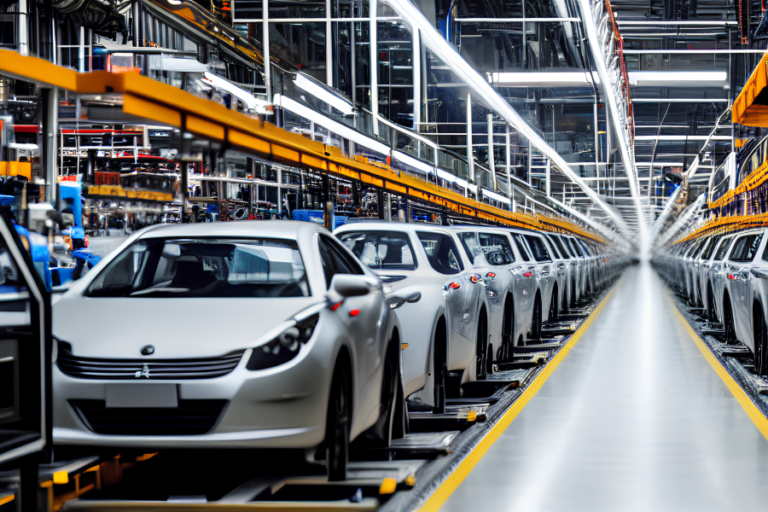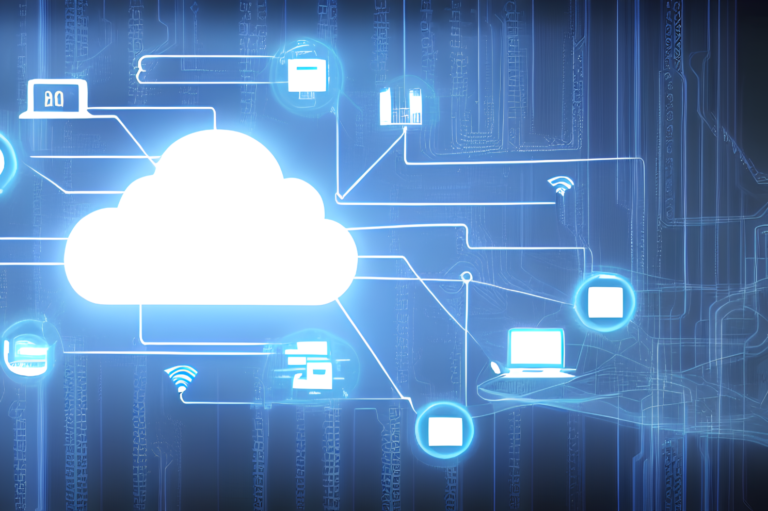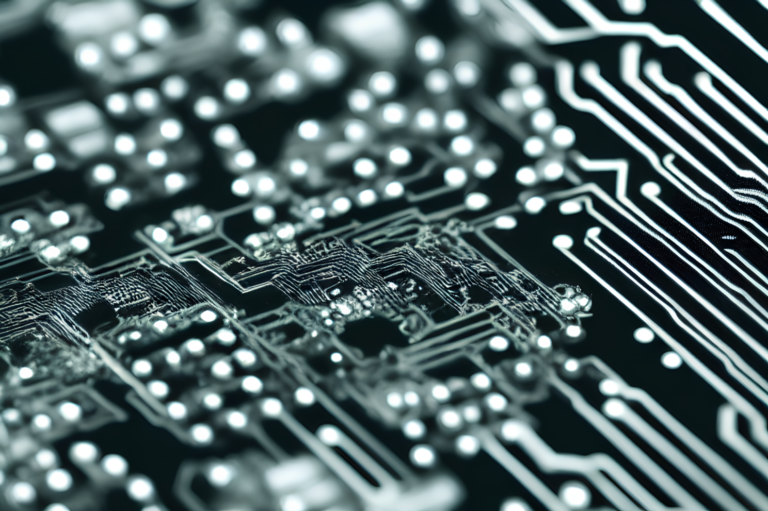The role of IoT in Industry 4.0


To grow, we always have to move with the trend. This is applicable not only to social media but also to the industry. We all know that we are connected to the internet, and these applications of the internet are increasing their capacity across industries too. Yes, you heard it correctly. The industrial application of the Internet of Things (IoT) is totally changing the game.
The growth of industrial IoT.
If we look briefly at the industry’s development, we see that from the first revolution to the fourth revolution, it has been completely changed. During the first industrial revolution, we began with mass production using water and steam to reduce human effort. Then came the use of oil and electric power, nearly around the turn of the 19th century, which started the second industrial revolution. The third industrial revolution started in the 20th century with computers and telecommunications.
Industry 4.0, also known as the Fourth Industrial Revolution, refers to the integration of advanced technologies such as the Internet of Things (IoT), artificial intelligence (AI), and big data into manufacturing and other industrial processes. The goal of Industry 4.0 is to create smart factories that are highly automated, connected, and able to make decisions based on data. It aims to improve efficiency, productivity, and flexibility in industrial processes and to create new business models and revenue streams.

We can see that we are already surrounded by an automated industry. The future is here, where are you?
In early 2015, according to a world economic survey, 88% of industrial leaders did not understand the applications of the Internet of Things and the associated business models. Excitement is growing as IoT Analytics reveals that in 2019, a quarter of Industry 4.0 use cases were already fully or extensively deployed by global enterprises.
And, by 2022, the adoption of Industry 4.0 had advanced even further. With most companies already starting to implement their Industry 4.0 and Smart Factory strategies, an impressive 72% of those surveyed by IoT Analytics have already begun working on their plans or have completed implementation.
“Industry 4.0” is the term used to describe the current trend of automation and data exchange in manufacturing technologies. It represents a technological revolution transforming traditional production processes by introducing new concepts such as cyber-physical systems, the Internet of Things (IoT), cloud computing, artificial intelligence (AI), and robotics into industrial operations.
Through these advances, Industry 4.0 promises increased efficiency, agility, and accuracy in production lines while also providing better customer service and improved products for consumers. With its potential to revolutionize entire industries across the globe, this fourth industrial era has become one of the most talked about topics within manufacturing today.

Do you want to reduce time and increase efficiency?
If your answer is yes, then definitely your industry needs to be upgraded with Industry 4.0. Industry 4.0 includes the integration of advanced technologies such as artificial intelligence, machine learning, and robotics into industrial processes, allowing for greater automation and the ability to perform complex tasks.
The concept behind the whole idea of “Industry 4.0” is creating a world where the world of machines is connected to the digital world of data and communications. The integration of IoT devices, sensors, and other technologies allows for the collection and analysis of data from industrial processes in real-time, which can then be used to improve efficiency and optimize performance.

Is this really helping the factory owners?
Operating with challenges such as energy costs, frequent breakdowns of machines, and low productivity has been with factory owners for years. Factory owners producing massive quantities of physical products are getting blocked. With industrial IoT, they can not only automate but also control the machines.
For example, an IoT-enabled machine was programmed to automatically adjust its speed or output based on data received from other machines or systems. This allowed for more efficient and flexible production, as well as improved quality control.
Best of all, they can use IoT to collect data on various aspects of industrial processes, such as temperature, pressure, and vibration. This data can be used to identify patterns and anomalies, which can help improve quality control and increase overall process efficiency.
Not only this, but they can track the location and status of goods in the supply chain, allowing for better inventory management and reducing the risk of stockouts.
Thanks to the industrial IoT, the factory was able to reduce energy costs, increase productivity, and improve its overall performance. The factory owners are very happy with the result of the use of IIoT.
Let's look at some applications :
● Predictive Maintenance: Monitoring the health and status of machines and equipment, such as vibration, temperature, and oil pressure, in real-time. This can help predict the failure before it occurs. So that scheduled maintenance can be done. This can help to reduce downtime and improve overall equipment reliability.
● Automation and Control: IoT devices can be used to control and automate industrial processes in a variety of ways. For example, an IoT-enabled machine can be programmed to automatically adjust its speed or output based on data received from other machines or systems. This allows for more efficient and flexible production, as well as improved quality control.
● Quality Control and Traceability: Helpful in collecting data of industrial processes, such as temperature, pressure, and vibration, in real-time. This data can be used to identify patterns and anomalies, which can indicate when a process is out of control. By collecting data at every step of a process, it is possible to trace the cause of a problem back to its source. This can help to improve quality control and increase overall process efficiency.
● Supply Chain Management: IoT can be used to track the location and status of goods in the supply chain, allowing for better inventory management and reducing the risk of stockouts. IoT devices such as RFID tags and GPS sensors can be used to track the movement of goods, providing real-time visibility into inventory levels, and enabling companies to quickly and efficiently respond to changes in demand.
● Smart Grid: The IoT can be used to improve the efficiency and reliability of the electric power grid by monitoring and controlling the flow of electricity in real-time. IoT devices such as smart meters and sensors can be used to monitor the power consumption of individual households and businesses, allowing for a more efficient distribution of electricity. Additionally, IoT devices can be used to monitor and control the operation of power plants, transmission lines, and other components of the power grid, allowing for more efficient and reliable power generation and distribution.
● Smart City: IoT can be used to improve the efficiency of city services, such as waste management, transportation, and public safety, by monitoring and controlling various systems in real-time. For example, IoT-enabled trash cans can automatically signal for pick-up when they are full, and traffic lights can be adjusted in real-time to reduce congestion. Additionally, IoT-enabled cameras and sensors can be used to improve public safety by monitoring traffic, detecting crime, and alerting authorities to potential hazards.
● Smart Agriculture: IoT can be used to monitor and control various aspects of agriculture, such as soil moisture, crop health, and weather conditions, to improve yields and reduce costs. For example, IoT-enabled sensors can be used to monitor soil moisture and adjust irrigation accordingly, or to monitor the growth and health of crops, and provide early warning of disease or pest outbreaks.
● Smart Logistics: IoT can be used to track the location and status of goods in the logistics chain, allowing for better inventory management and reducing the risk of stockouts. IoT devices such as RFID tags and GPS sensors can be used to track the movement of goods, providing real-time visibility into inventory levels, and enabling logistics companies to quickly and efficiently respond to changes in demand.
Well, that was a great application, but don't you want to know how the IoT is doing this?
What IoT is doing in Industry 4.0 is actually connecting devices and machines to the internet, allowing them to communicate and share data with each other and with other systems. This is achieved through the use of sensors, actuators, and other IoT devices that are embedded in machines and equipment.
These devices collect data on various aspects of industrial processes, such as temperature, pressure, and vibration, and transmit this data to the cloud or a local gateway. This data can then be analyzed and used to optimize performance, improve efficiency, and reduce downtime.
In addition to data collection, IoT devices can also be used to control and automate industrial processes. For example, an IoT-enabled machine can be programmed to automatically adjust its speed or output based on data received from other machines or systems.
IoT devices can also be used to monitor the health and status of machines and equipment, allowing for predictive maintenance and reducing the need for manual inspections.
Overall, the integration of IoT into industrial processes enables Industry 4.0 to create a cyber-physical system, where the physical world of machines and equipment is connected to the digital world of data and communication, allowing for greater automation, better decision-making, and less human intervention.
Wondering how you can get ahead in the Industry 4.0 movement?
IOSCAPE is the answer. We provide innovative technology that bridges the gap between the physical and digital worlds, giving you greater automation, better decision-making, and less human intervention. Our products are designed to help you succeed in the fourth industrial revolution.
Imagine a world where you never have to worry about human error again. A world where machines make all the decisions for you, based on data that has been crunched in real-time. That’s the world IOSCAPE will create for you..
Contact us today to find out more about how we can help your business thrive in the age of Industry 4.0!